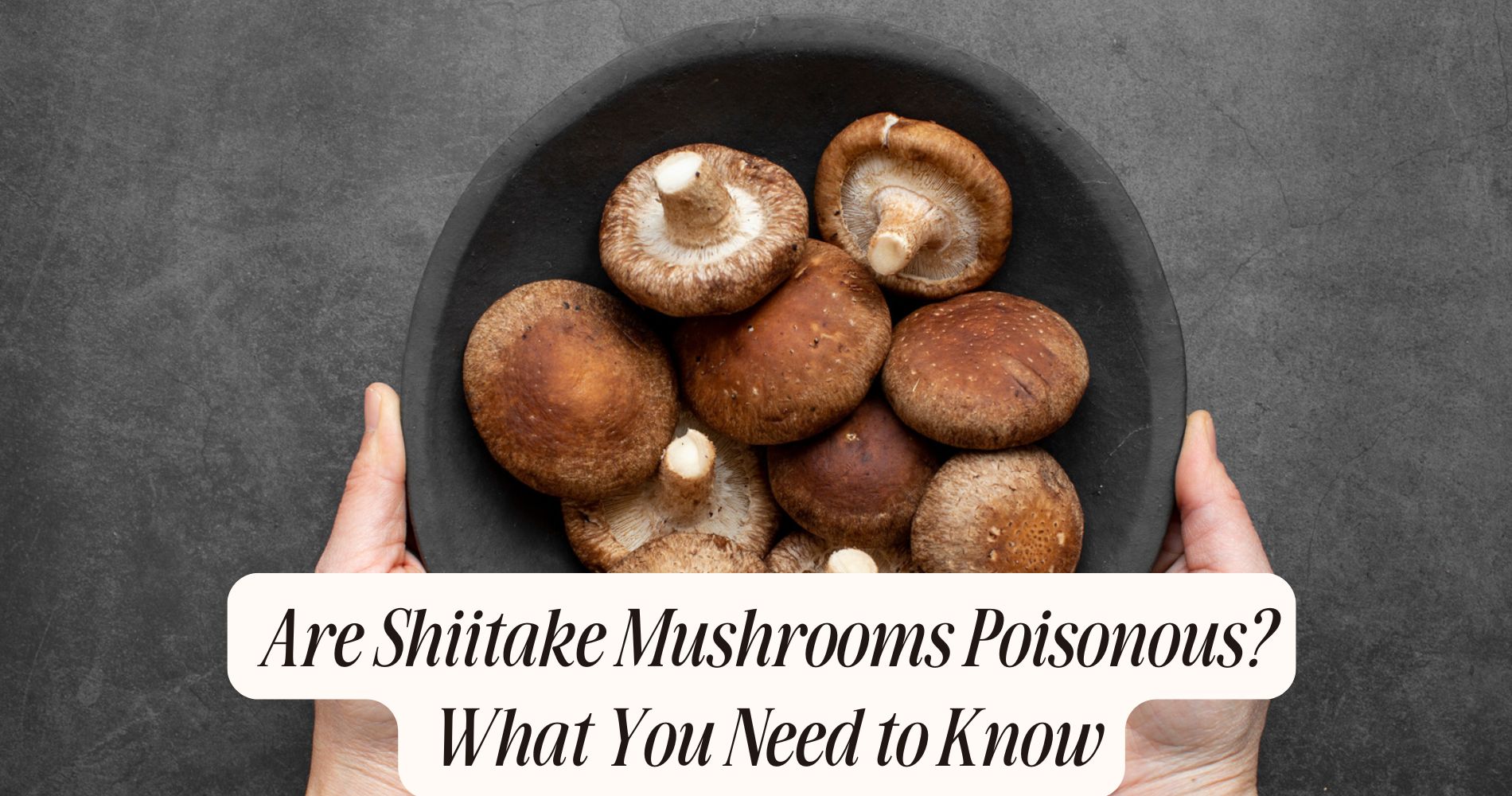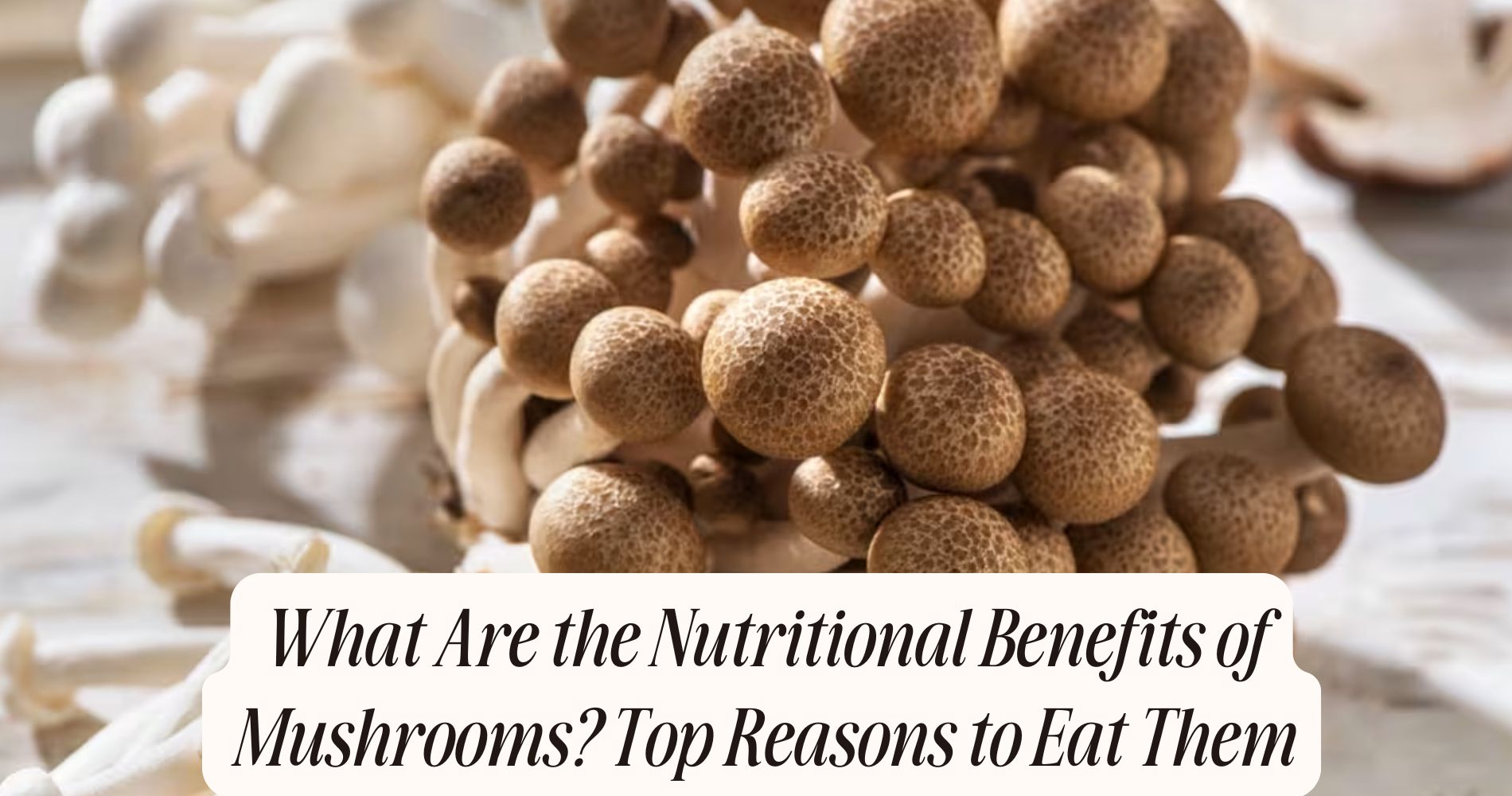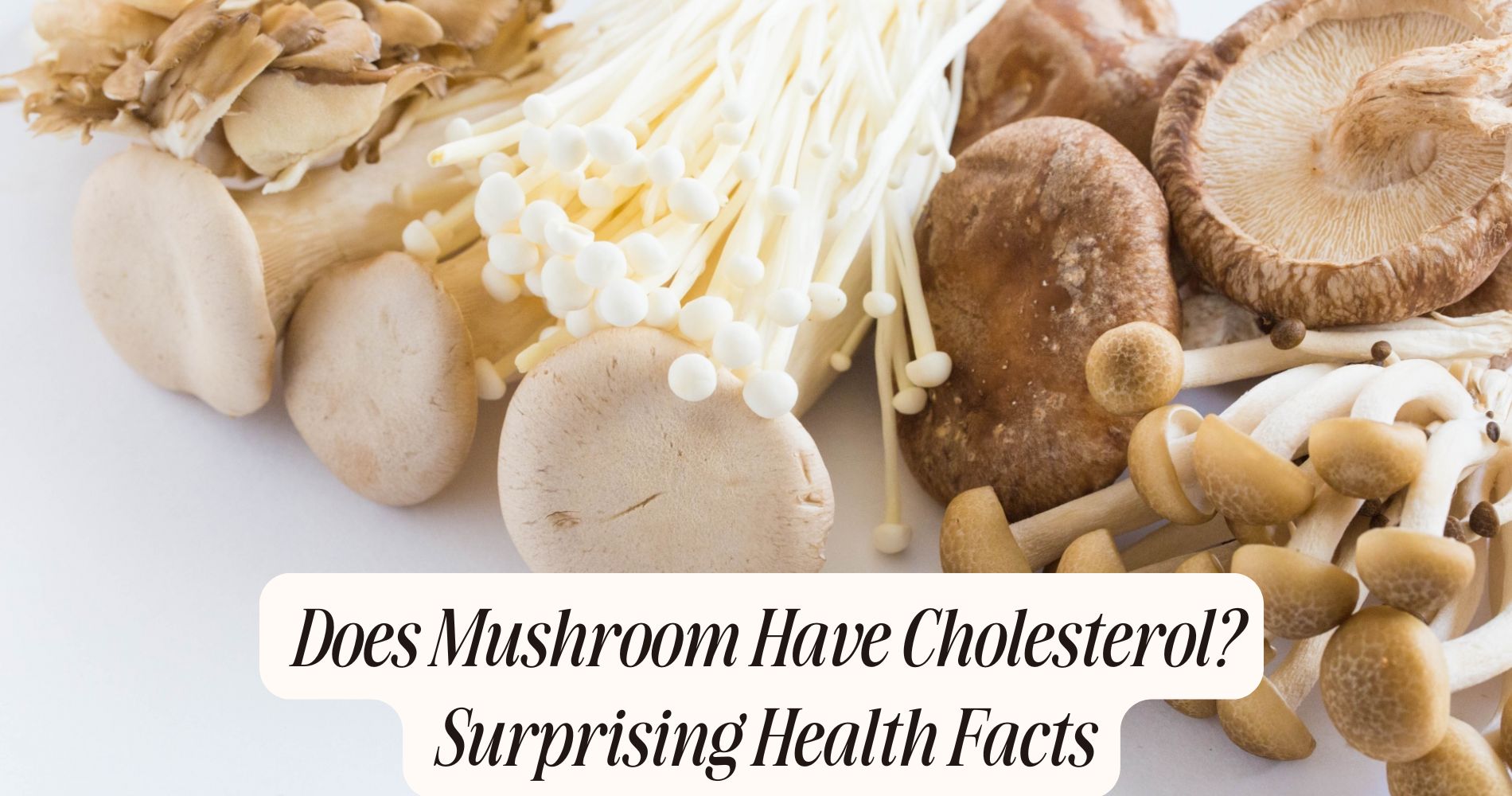
Are Shiitake Mushrooms Poisonous? What You Need to Know
Are shiitake mushrooms poisonous? Shiitake mushrooms aren't poisonous when cooked properly. While some raw shiitake can cause sensitivity or allergic reactions, thorough cooking minimizes these risks. They're safe and nutritious, offering health benefits like immune support and cholesterol reduction. It's crucial to source fresh, firm mushrooms and avoid raw consumption to prevent digestive issues. By following these tips, you can safely enjoy shiitake mushrooms and discover more about their culinary and health benefits.
Understanding Shiitake Mushrooms: An Overview
While many people enjoy shiitake mushrooms for their rich flavor and culinary versatility, understanding their characteristics and safety is vital.
Shiitake mushrooms, scientifically known as Lentinula edodes, are native to East Asia and thrive in humid environments. Their cultivation typically involves inoculating logs or sawdust with spores, creating an ideal environment for growth.

They're renowned for their umami flavor, making them popular in a variety of dishes, from soups to stir-fries. Additionally, shiitake mushrooms contain beneficial compounds, including polysaccharides and vitamins, contributing to their nutritional value.
However, proper handling and cooking are essential to guarantee safety and maximize their culinary uses, as raw shiitake can cause adverse reactions in some individuals. Understanding these aspects enhances your culinary experience.
Common Myths About Shiitake Mushroom Safety
Shiitake mushrooms are often surrounded by misconceptions regarding their safety. One common myth is that all mushrooms, including shiitake, are toxic. In reality, shiitake mushrooms are generally safe to eat when properly prepared.
Another shiitake misconception is that consuming raw shiitake can lead to severe reactions. While some individuals may experience sensitivity, cooking the mushrooms usually mitigates this risk.
Additionally, there's a belief that shiitake mushrooms can cause allergic reactions in everyone. However, allergies are relatively rare and often specific to certain individuals.
Understanding these shiitake misconceptions can enhance your confidence in mushroom safety. Always source shiitake mushrooms from reputable suppliers, and guarantee they're cooked properly to enjoy their full benefits without concern.
Health Benefits of Shiitake Mushrooms
When you incorporate shiitake mushrooms into your diet, you're not just adding flavor; you're also reaping numerous health benefits.
These mushrooms boast a rich nutrient content, including essential vitamins such as B vitamins, vitamin D, and minerals like selenium and copper. Their high levels of polysaccharides, particularly lentinans, contribute to immune support and may have anti-cancer properties.

Shiitake mushrooms also contain compounds that can help lower cholesterol levels and improve heart health.
Regarding culinary uses, you can enjoy them in stir-fries, soups, or as a meat substitute, enhancing both taste and nutrition.
Potential Risks and Allergies Associated With Shiitake Mushrooms
What should you know about the potential risks and allergies associated with shiitake mushrooms?
While shiitake mushrooms are generally safe to eat, they can cause allergic reactions in some individuals. Symptoms may include skin rashes, respiratory issues, or gastrointestinal discomfort.
Furthermore, shiitake mushrooms contain a compound called lentinans, which can contribute to mushroom toxicity if consumed in excess. This toxicity may result in symptoms such as nausea or diarrhea.
It's crucial to properly cook shiitake mushrooms, as raw consumption can heighten these risks. If you're prone to allergies, consider consulting with a healthcare provider before adding shiitake mushrooms to your diet.
Understanding these potential risks can help you enjoy this nutritious fungus safely.
Tips for Safely Enjoying Shiitake Mushrooms
To safely enjoy shiitake mushrooms while minimizing health risks, it's crucial to follow a few key guidelines.
First, always choose fresh mushrooms; look for firm, unblemished specimens.
When it comes to cooking methods, sautéing or stir-frying are effective ways to enhance flavor while ensuring thorough cooking, which helps eliminate potential toxins.
Avoid consuming raw shiitake mushrooms, as they can cause digestive issues.

For storage tips, keep unwashed mushrooms in a paper bag in the refrigerator to maintain freshness and prevent moisture buildup. Use them within a week for peak taste and safety.
Finally, if you're trying shiitake mushrooms for the first time, start with a small amount to monitor for any allergic reactions.
Enjoy your cooking!
Elevate Your Wellness with SUPER MUSHROOM GUMMIES
While shiitake mushrooms offer incredible health benefits, incorporating a variety of functional mushrooms into your routine can amplify your overall well-being. SUPER MUSHROOM GUMMIES by Well Gummies provide a convenient and delicious way to enjoy the power of 10 functional mushrooms—all in a chewable form. These vegan-friendly gummies fuel your brain, boost focus, and support immune health with naturally sourced ingredients. Plus, they taste like fresh wild berries, making them as enjoyable as your favorite candy. No jitters, no crash—just sustained energy and clarity all day long. Try them today and experience the benefits for yourself!
Frequently Asked Questions
Can You Eat Raw Shiitake Mushrooms Safely?
You shouldn't eat raw shiitake mushrooms due to potential health risks. Cooking them reduces the risk of gastrointestinal issues and enhances their flavor, making them a safer and tastier option for consumption.
How Do You Properly Store Shiitake Mushrooms?
To properly store shiitake mushrooms, use mushroom preservation techniques like refrigerating them in a paper bag. Guarantee ideal storage conditions by maintaining a cool, dry environment, preventing moisture buildup that can lead to spoilage.
Are Dried Shiitake Mushrooms as Nutritious as Fresh Ones?
When comparing fresh mushrooms to dried, you'll find dried mushroom benefits include concentrated nutrients and longer shelf life. While some vitamins may decrease, dried shiitakes still offer significant nutritional value and flavor for your dishes.
What Are the Culinary Uses of Shiitake Mushrooms?
Shiitake mushrooms add depth to various dishes. You can use them in stir-fries, soups, or risottos. Their rich, umami flavor profile enhances shiitake recipes, making them a versatile ingredient in both Asian and Western cuisines.
How Can You Identify Fresh Shiitake Mushrooms?
When identifying fresh shiitake mushrooms, look for firm caps with a smooth, dark brown surface and tightly closed gills. Avoid any with slimy textures, wrinkles, or discoloration, as these indicate reduced mushroom freshness.
Conclusion
To summarize, shiitake mushrooms aren't poisonous when properly prepared and consumed. While they offer numerous health benefits, it's important to be aware of potential allergies and risks associated with improper handling. By following safe cooking practices and being mindful of your individual sensitivities, you can enjoy the rich flavors and nutritional advantages of shiitake mushrooms. Always consult a healthcare professional if you have concerns about allergies or dietary restrictions before incorporating them into your meals.




